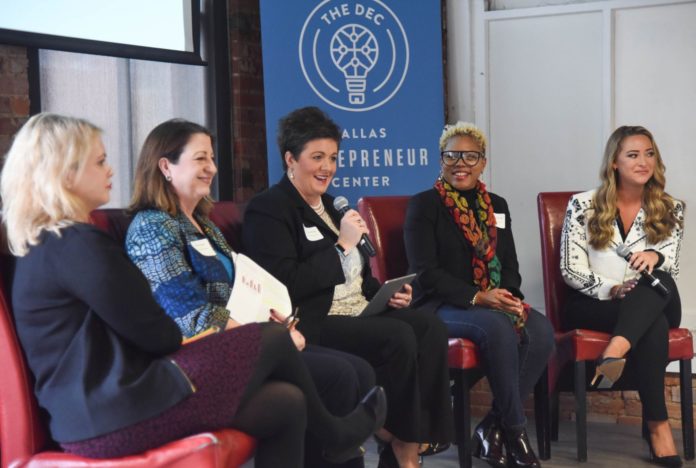Fall 2017 Small Business Growth Index
Findings from Capital One’s survey of small businesses nationwide.
• Overall confidence is up: Capital One’s Small Business Confidence Score tracking overall small business sentiment on the economy, hiring plans, future financial positions and recent sales, has reached its highest point since 2012.
• Revenues are increasing: Nearly half (47 percent) of SBOs reported increased sales in the past six months, up 10 points from earlier this year.
• Hiring plans remain flat: Plans for growth remain steady, with 25 percent of businesses planning to hire in the next six months – down two points from earlier this year. Seventy-two percent of SBOs said increases in minimum wage are not affecting business growth.
• Concerns about cash flow and technology are on the rise: The number of SBOs concerned with cash flow management increased 11 points from fall 2016, while the number concerned with keeping up with technology increased seven points from fall 2016.
• Taxes and regulations are top of mind: Nearly a quarter (24 percent) of small-business owners reported that loosened federal and state regulations have had a positive impact on growth. Meanwhile, 37 percent of SBOs say the Affordable Care Act has had a negative impact on business growth, and 30 percent say tax rates and laws have negatively affected their business.
Source: Capital One
While the majority of small businesses do use social media to increase their business, many still do not despite the popularity of Facebook, Twitter and Instagram.
That was one of the findings of Capital One’s Small Business Growth Index, a survey of small businesses across the country that was discussed during the Dallas Entrepreneur Center entrepreneurship bootcamp for women in small business on Nov. 14 in Dallas.
Capital One’s study found that 48 percent of small-business owners do not use social media sites to grow their businesses. But, the study found, of those that do, 55 percent found an increase in sales from social media sites.
“A lot of people have personal social media but don’t know or have time to use it to grow their business. I think that it’s a lack of education when it comes to social media,” said MonaLisa Cash, CEO and founder of CureQuest Leukemia Inc. who was one of the panelists at the event.
She also believes that the web can be an asset to companies and that finding ways to expand a company’s digital reach begins with leveraging contacts.
“It’s crucial that you connect and network at events and functions to grow your networks and resources,” Cash said. “If you have access to someone who can develop an app, that will take your business to places you have never seen.”
The event kicked off with a four-woman panel drawn from across various industries. The event, put on by the Dallas Entrepreneur Center and its WEDallas or Women Entrepreneur Dallas initiative, was sponsored by Capital One.
Other panelists were Julie Gunter with the Federal Reserve Bank of Dallas; Amy Simmons, market sales executive with Capital One; and Natalie Fletcher, director of innovation with the Dallas Regional Chamber.
“It’s important to the success of any community that entrepreneurs in the community are successful,” Simmons said.
The panel discussion was supplemented by Capital One’s latest Small Business Growth Index. This study polled 500 small-business owners (SBOs) in August.
Key themes found in the study and discussed at the event included overall confidence being up for SBOs, increasing revenues, stagnant hiring, and increasing concerns about cash flow and technology, while taxes and regulations remain a top concern.
According to the Capital One study, 57 percent of SBOs say holiday sales only account for 10 percent or less of their annual sales. Additionally, 90 percent of SBOs do not plan on running any Black Friday or Cyber Monday sales this year.
The panelists had mixed feelings about this finding, explaining that this may not be true for all industries. Simmons said that SBOs typically will offer package sales rather than deep discounts because they simply can’t afford the hit to their bottom line to keep up with the major retailers such as Amazon and Walmart.
“Knowing your market is important to decide if leveraging holiday sales is worth it to SBOs,” Simmons said.
While e-commerce has sprung into popularity, traditional in-store shopping has adjusted. What traditional shopping lacks in click-of-a-button convenience it makes up in the holiday experience.
“Millennials gravitate toward experiential shopping. If they aren’t going to shop online, they want to have a fun experience,” Fletcher said.
However, she added, “E-commerce is growing more and more and people are buying off the phone. If you don’t have a website, a mobile-friendly website, you’re missing out on sales.”
One of the struggles faced by SBOs is the hiring process. Small businesses hire 50 percent of the workforce, according to the Capital One study.
“Marketing, sales and customer service are the hardest skills to find,” Gunter said. “Finding capable employees is the biggest problem for Texas small-business owners.”
A solution explored by the panelists was offering internships to high school and university students. Internship positions give SBOs the opportunity to evaluate potential full-time employees and give students invaluable skills.
The next most important aspect of business that can improve an SBO’s performance is better management of cash flow. To tackle this issue, Gunter cited budgeting, saving and investing as highly valuable aspects of business management.
Finally, panelists discussed how important it is for an SBO to fully ingrain itself in its community. Valuable business connections can be made citywide through attending networking events, joining organizations, using co-working spaces and by word of mouth.
The panelists also advised women business owners not to short-change business with a soft ask. Asking for help and making personal connections are important aspects of running a small business.
“Don’t just join an organization, find that key influential person. You’ll be amazed how many people want to help you; you just have to ask,” Simmons said.






